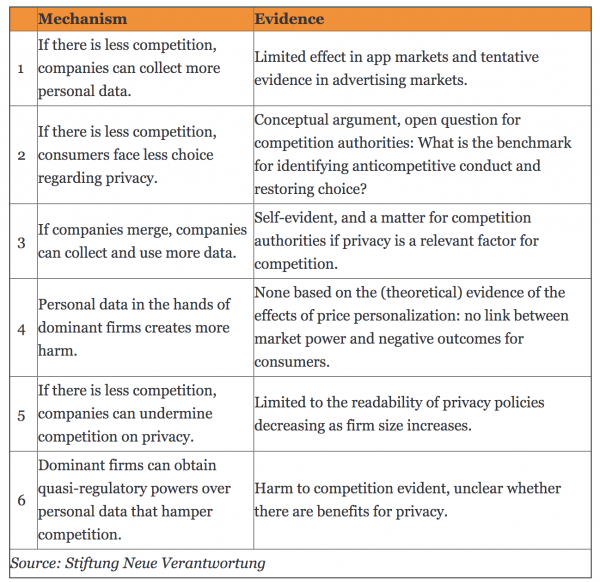Paper by Aline Blankertz: “A small number of large digital platforms increasingly shape the space for most online interactions around the globe and they often act with hardly any constraint from competing services. The lack of competition puts those platforms in a powerful position that may allow them to exploit consumers and offer them limited choice. Privacy is increasingly considered one area in which the lack of competition may create harm. Because of these concerns, governments and other institutions are developing proposals to expand the scope for competition authorities to intervene to limit the power of the large platforms and to revive competition.
The first case that has explicitly addressed anticompetitive harm to privacy is the German Bundeskartellamt’s case against Facebook in which the authority argues that imposing bad privacy terms can amount to an abuse of dominance. Since that case started in 2016, more cases deal with the link between competition and privacy. For example, the proposed Google/Fitbit merger has raised concerns about sensitive health data being merged with existing Google profiles and Apple is under scrutiny for not sharing certain personal data while using it for its own services.
However, addressing bad privacy outcomes through competition policy is effective only if those outcomes are caused, at least partly, by a lack of competition. Six distinct mechanisms can be distinguished through which competition may affect privacy, as summarized in Table 1. These mechanisms constitute different hypotheses through which less competition may influence privacy outcomes and lead either to worse privacy in different ways (mechanisms 1-5) or even better privacy (mechanism 6). The table also summarizes the available evidence on whether and to what extent the hypothesized effects are present in actual markets….(More)”.

